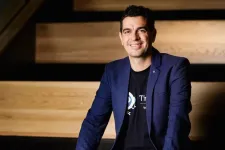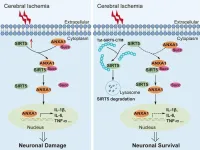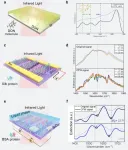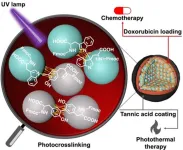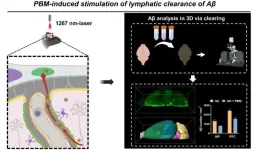An international research team has shown that the debilitating impact of tinnitus can be effectively reduced in just weeks by a training course and sound therapy delivered via a smartphone app.
The team from Australian, New Zealand, French and Belgian universities report these findings today in Frontiers in Audiology and Otology.
It offers some hope for millions affected by tinnitus who:
have been told that there is nothing they can do about it
face long queues waiting for treatment, or
can’t afford the costs of specialist support.
The initial trial worked with 30 sufferers, of whom almost two thirds experienced a ‘clinically significant improvement’. The team are now planning larger trials in the UK in collaboration with the University College London Hospital.
The app, MindEar, is available for individuals to trial for themselves on a smartphone.
Tinnitus is common, affecting up to one in four people. It is mostly experienced by older adults but can appear for children. For some, it goes away without intervention. For others, it can be debilitatingly lifechanging: affecting hearing, mood, concentration, sleep and in severe cases, causing anxiety or depression.
“About 1.5 million people in Australia, 4 million in the UK and 20 million in the USA have severe tinnitus,” says Dr Fabrice Bardy, an audiologist at Waipapa Taumata Rau, University of Auckland and lead author of the paper. Dr Bardy is also co-founder of MindEar, a company set up to commercialise the MindEar technology.
“One of the most common misconceptions about tinnitus is that there is nothing you can do about it; that you just have to live with it. This is simply not true. Professional help from those with expertise in tinnitus support can reduce the fear and anxiety attached to the sound patients experience,” he says.
“Cognitive behavioural therapy is known to help people with tinnitus, but it requires a trained psychologist. That’s expensive, and often difficult to access,” says Professor Suzanne Purdy, Professor of Psychology at Waipapa Taumata Rau, University of Auckland.
“MindEar uses a combination of cognitive behavioural therapy, mindfulness and relaxation exercises as well as sound therapy to help you train your brain’s reaction so that we can tune out tinnitus. The sound you perceive fades in the background and is much less bothersome,” she says.
“In our trial, two thirds of users of our chatbot saw improvement after 16 weeks. This was shortened to only 8 weeks when patients additionally had access to an online psychologist,” says Dr Bardy.
Why does it work?
Even before we are born, our brains learn to filter out sounds that we determine to be irrelevant, such as the surprisingly loud sound of blood rushing past our ears. As we grow, our brains further learn to filter out environmental noises such as a busy road, an air conditioner or sleeping partners.
Most alarms, such as those in smoke detectors, bypass this filter and trigger a sense of alert for people, even if they are asleep. This primes the fight-or-flight response, and is especially strong for sounds we associate with bad prior experiences.
Unlike an alarm, tinnitus occurs when a person hears a sound in the head or ears, when there is no external sound source or risk presented in the environment, and yet the mind responds with a similar alert response.
The sound is perceived as an unpleasant, irritating, or intrusive noise that can't be switched off. The brain focuses on it insistently, further training our mind to pay even more attention even though there is no risk. This offers the pathway for patients. By training and actively giving the tinnitus less attention, the easier it becomes to tunes out.
MindEar aims to help people to practice focus through a training program, equipping the mind and body to suppress stress hormones and responses and thus reducing the brain’s focus on tinnitus.
Tinnitus is not a disease in itself but is usually a symptom of another underlying health condition, such as damage to the auditory system or tensions occurring in the head and neck.
Although there is no known cure for tinnitus, there are management strategies and techniques that help many sufferers find relief. With the evidence of this trial, the MindEar team are optimistic that there is a more accessible, rapidly available and effective tool available for the many of those affected by tinnitus still awaiting support.
MindEar is based on the research work of an international multi-disciplinary team composed of audiologists (Dr Laure Jacquemin, Dr Michael Maslin), psychologists (Prof Suzanne Purdy and Dr Cara Wong) and ENTs (Prof Hung Thai Van) led by Dr Fabrice Bardy based at the University of Auckland.
Interviews with spokespeople, patient case studies, and a media pack are available on request.
Journalists in the USA & Canada, please contact Erin Kim: e@erinheejoon.com | +1 347 261 2364
Journalists in Australia, New Zealand, UK and elsewhere, please contact Tom Carruthers: tom@scienceinpublic.com.au | +61 404 404 026
Media pack includes:
Additional comments & quotes
Research article abstract, authors and affiliations
Background on the development of MindEar
Further background resources on tinnitus
Delivery of internet-based cognitive behavioral therapy combined with human-delivered telepsychology in tinnitus sufferers through a chatbot-based mobile app
Fabrice Bardy1,2*, Laure Jacquemin3,4, Cara L. Wong, Michael R. D. Maslin1,2,5, Suzanne C. Purdy1,2 and Hung Thai-Van6,7,8
1School of Psychology, Speech Science, The University of Auckland, Auckland, New Zealand
2Eisdell Moore Centre for Hearing and Balance Research, Auckland, New Zealand
3Department of Translational Neuroscience, Faculty of Medicine and Health Science, University of Antwerp, Antwerp, Belgium
4University Department of Otorhinolaryngology and Head and Neck Surgery, Antwerp University Hospital, Edegem, Belgium
5School of Psychology, Speech and Hearing, The University of Canterbury, Canterbury, New Zealand
6Service d’Audiologie & d’Explorations Otoneurologiques, Hospices Civils de Lyon, Lyon, France
7Université Claude Bernard Lyon 1, Villeurbanne, France
8Institut de l’Audition, Institut Pasteur, Inserm, Paris, France
Background: While there is no cure for tinnitus, research has shown that cognitive behavioral therapy (CBT) is effective in managing clinical sequelae. Although traditional CBT is labor-intensive and costly, new online consultations may improve accessibility. Moreover, there is promise in an engaging conversational agent, or a “chatbot,” delivering CBT in a conversation-like manner and allowing users to work through complex situations with the guidance of a virtual coach. Currently, there is little research examining a possible hybrid model using iCBT and tele consultation with a psychologist.
Methods: A randomized, 2 parallel-group trial was conducted to compare the clinical effectiveness of (1) iCBT delivered through a chatbot mobile app (i.e., Tinnibot only group) (2) Tinnibot combined with telepsychology (i.e., hybrid- intervention group). A total of 30 eligible adults with tinnitus were included. After an 8-week intervention period, participants were followed up for 2 months. The primary outcome measure, the Tinnitus Functional Index (TFI), and the secondary outcome measures, Hyperacusis Questionnaire (HQ), Generalized Anxiety Disorder 7-item (GAD-7), and Patient Health Questionnaire (PHQ-9), were assessed before treatment, post-treatment, and at follow-up.
Results: The TFI decreased significantly over time in both groups, with a trend for a larger improvement in the group that received telepsychology. At post-treatment, a clinically significant improvement was observed in 42% of the Tinnibot-only group and 64% of the hybrid-intervention group. At follow-up, this was 64% for both groups. The secondary outcome measures, PHQ-9 and GAD-7 improved significantly over time, but the HQ did not.
Discussion: Internet-based delivery of CBT is effective in decreasing tinnitus distress, and levels of anxiety and depression, which is more relevant today than ever in the context of a global pandemic that has challenged the delivery of face-to-face intervention. The addition of telepsychology might be beneficial, but not essential for the effectiveness of treatment. There is a need for further research to determine whether there is any relationship between the characteristics of tinnitus patients and the success of the different modes of delivery of therapy.
END
